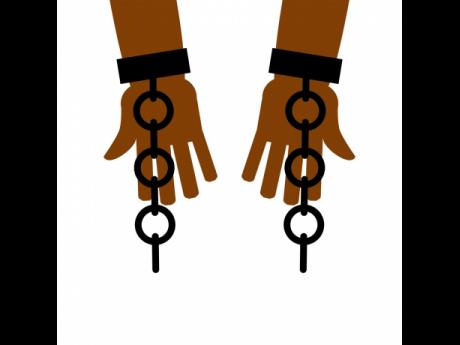The beating and tarring of Reverend Henry Bleby
SLAVERY-DAY MAGISTRATES, some of whom were planters themselves, were full of rancor against the Christian missionaries who opposed and campaigned against slavery. The bitterness, festering for decades, came to a head after the 1831 Sam Sharpe Rebellion, orchestrated, but not started, by Sharpe himself.
The missionaries, especially the Baptists and the Methodists, were unable to return to the places where they were stationed for a while. They were firmly behind the uprising, the planters claimed. When Rev Henry Bleby, then a new missionary, stationed in Hanover, had heard of the plans for the rebellion, he was out of town. He rode back to Lucea to discourage the enslaved, but by the time he arrived, western Jamaica was on fire. Martial Law was declared and Bleby was forced to join the militia in Hanover.
Members of the Colonial Church Union (CCU) were now on a rampage burning chapels, including those of Bleby and William Knibb. Bleby was in Kingston at a meeting when he heard that his church was destroyed. A decision was taken to relocate him to Falmouth and close the Lucea Circuit. He decided to go to Montego Bay for his family before settling in Falmouth. When a Mr Dyer, editor of the Cornwall Courier newspaper heard of Bleby’s presence in Falmouth, he published an article in which he threatened to tar and feather preachers who stayed in Falmouth for more than 24 hours.
Afraid of a possible attack, Bleby got some friends to stay with him, but his landlord was uncomfortable with Bleby in his house, and asked him to leave. Bleby went to Montego Bay, but returned to Falmouth after the said landlord gave him a three-month lease. Things seemed to be quiet initially, and Bleby invited over some of his Methodist colleagues on April 5, 1832.
Dyer, who was also a magistrate, sent constables to lock up Bleby for preaching without a licence. That evening Bleby got a letter which threatened to tar and feather him should he refuse to leave town. The landlord was not pleased about the developments, and gave Bleby notice to leave. He refused to.
On April 6, the harassment from his landlord continued, and constables kept vigil around the house. The following evening, just as darkness fell, while the Blebys were having tea, the desperadoes from the CCU smashed a window, and broke down a door of their home and entered. Utter mayhem ensued.
They dashed upstairs where they seized Bleby and clout him on his head with a piece of stick. Bleby, stunned, fell to the ground. They pulled him from the floor, and pinned him against a window frame. Soon, a keg of tar was brought into the room. They rolled their sleeves before smearing and plastering Bleby’s head and torso with the tar, some of which was rubbed into his eyes.
Dobson, the man who hit Bleby first, attempted to set him ablaze with a candle, but Bleby’s wife, who had fought through the throng, kicked the candle out of his hand. The attackers pulled her away, shoved her to the floor, and stomped her. By now Dobson had found another lit candle, with which he tried to set Bleby on fire, again. Mrs Bleby was successful once more in putting out the candle. This frustrated her tormentors who tried to lock her in a closet.
The chaos woke the Bleby’s baby, who cried raucously. Somebody ordered the baby be thrown through a window. This further energised Mrs Bleby. She, covered in tar herself, broke away from her restrainers, found the man who had the baby, grabbed it, sprinted downstairs, bolted through a backdoor with no hat and only one shoe on, and escaped into the dark streets with her baby.
News of the attack on Bleby spread fast. Black and coloured men rushed to the residence where a melee broke out with the attackers downstairs. When the ones upstairs heard the commotion they retreated. With the attackers gone, Bleby attempted to go downstairs, but was pounced upon by Dobson again. Up and down he went a second time. The attackers charged, but his rescuers pulled him away. He too dashed away from the house, jumped over a fence on to a street where he saw his wife and child.
A few things ensued after, but Bleby was eventually put up in the barracks of the 22nd Regiment. Suggestions that he leave Falmouth were made, but Bleby stayed put. Dyer wanted him arrested for public mischief, and attempted to assault Bleby, who was adamant about pressing charges against his attackers. But, all the magistrates in Falmouth refused to help him initiate court actions.
So, he sought help in Montego Bay, where there was more frustration. It was the governor himself who got Dobson and two other attackers indicted. But, it turned out that the jurors were members of the same CCU that persecuted Bleby. The case fizzled and Bleby remained in Montego Bay on strong advice.



